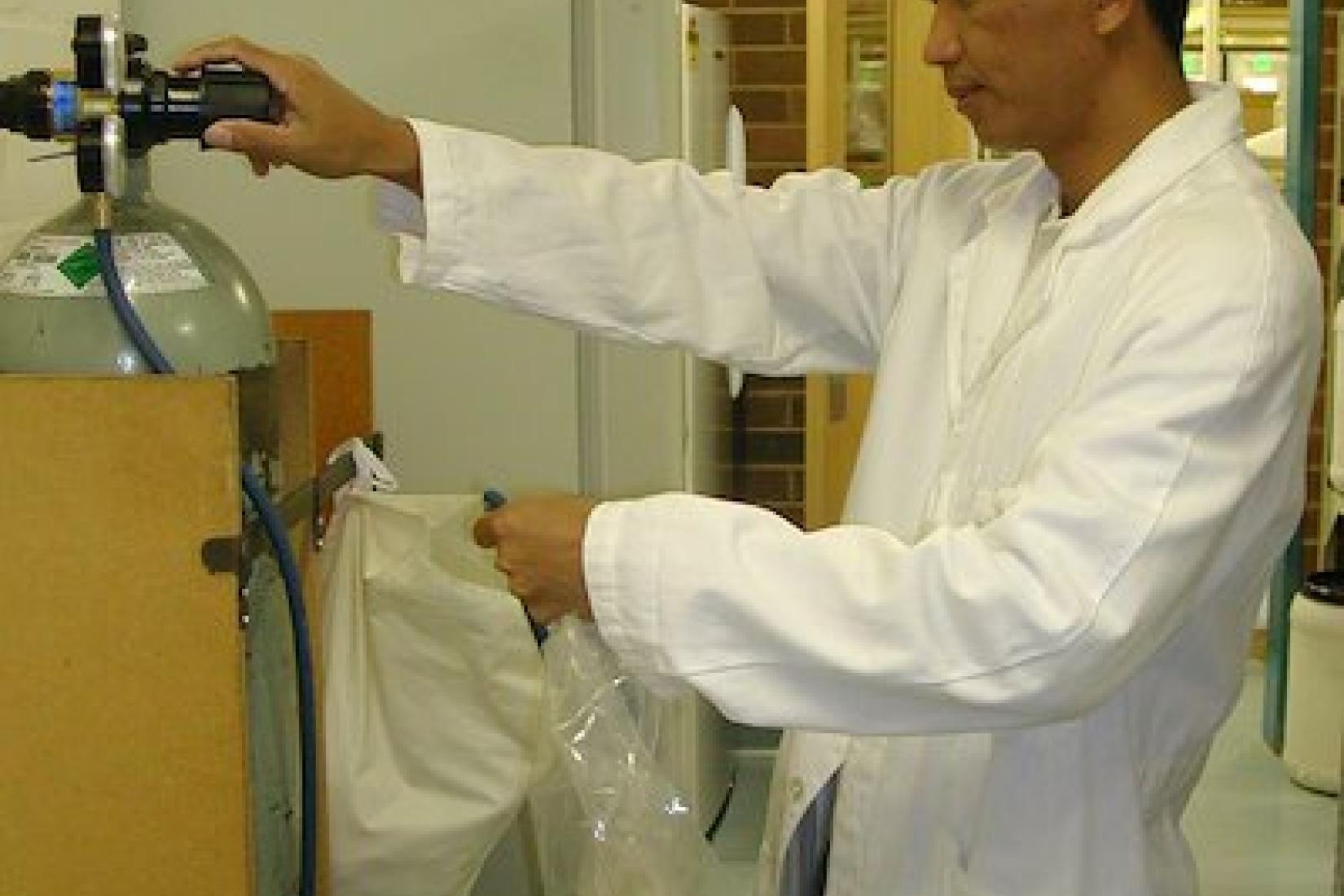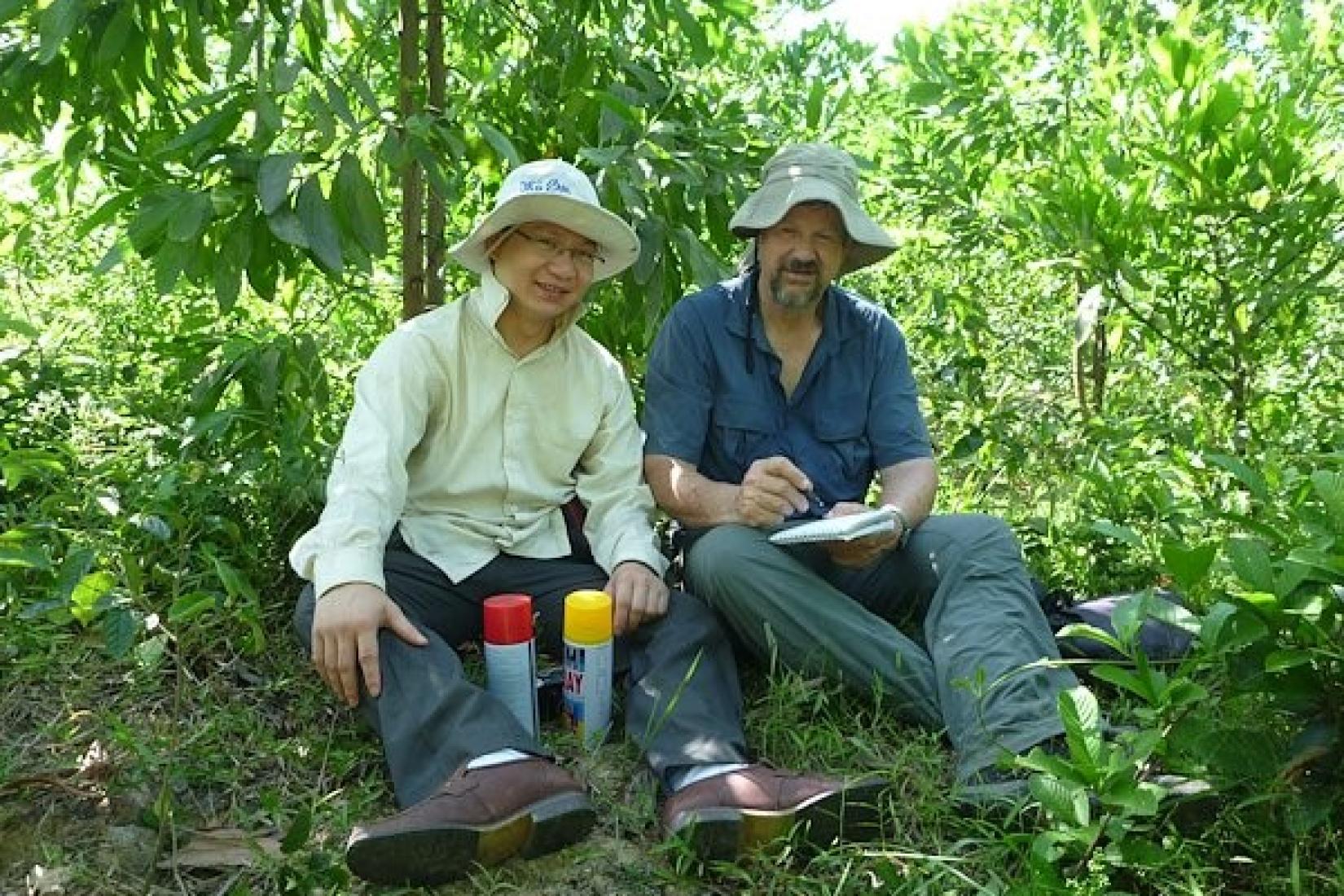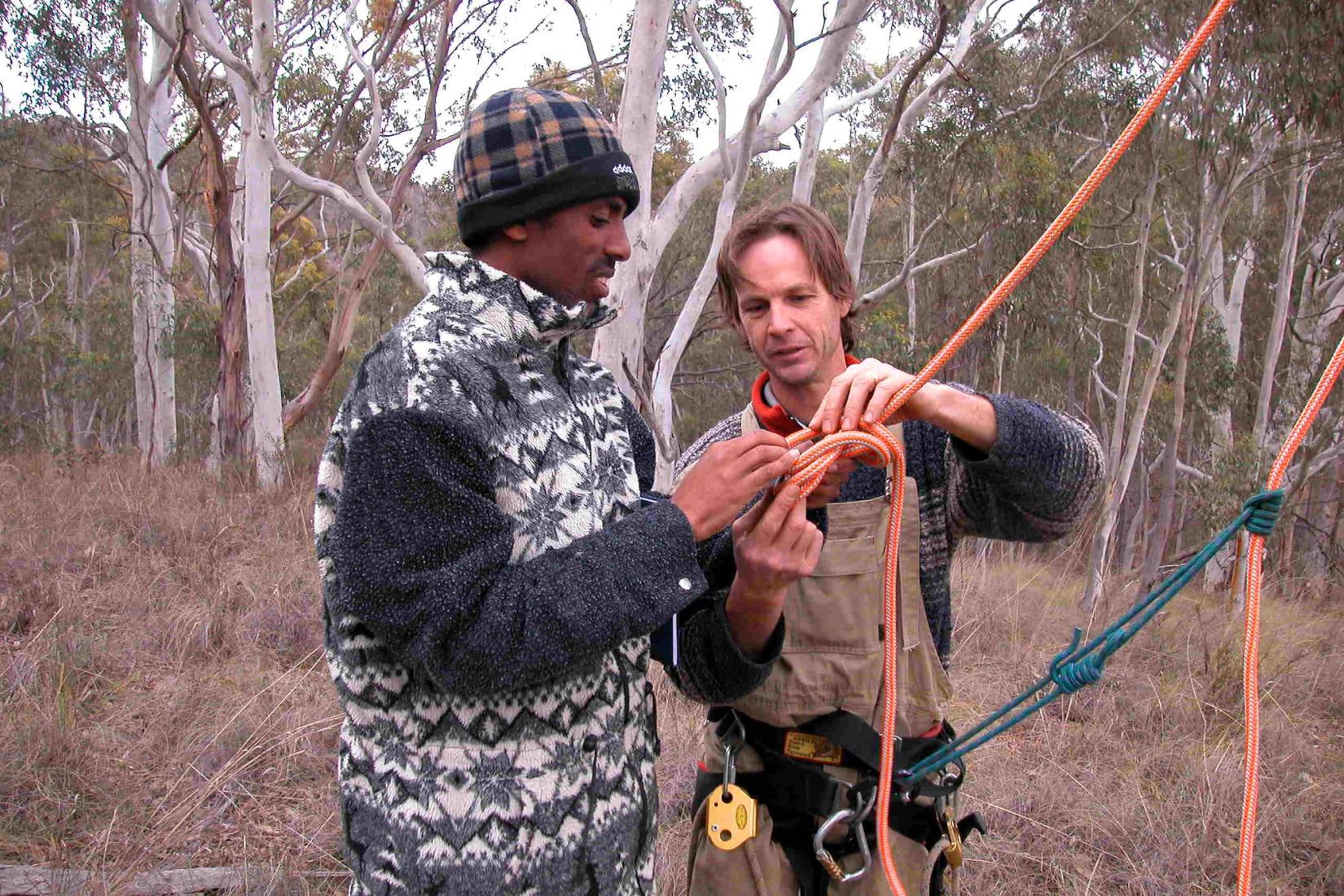GROWING CAPABILITY
Capacity building was a vital component of the SAT and DAT projects, with frequent advisory visits to countries to provide training in seed collection, handling and seed orchard technology; tree breeding; and co-supervision of postgraduate research. In addition, over 200 trainees attended short-term courses on the science of tree domestication. At least 20 former trainees now hold key positions in national agencies concerned with forest genetics and tree breeding. Through the personal relationships that were established, research collaboration set up under SAT and DAT continues today.
The progeny trials set up in the 1990s in countries such as India, Sri Lanka and Vietnam form the backbone of today’s advanced breeding programs. Now, some countries are in their third generation of breeding these important tree species. Breeding trials identify the best trees, which are then used in seed orchards, and also for controlled pollination to produce inter-specific hybrid varieties. These hybrids must be clonally propagated to produce planting stock for plantations.
With ever-growing attention to disease tolerance, Vietnam’s Academy of Forest Sciences has developed outstanding acacia and eucalypt hybrid varieties and the technical infrastructure that gives growers throughout the country clonal planting stock at low cost. As with food crop breeding, tree breeding never stops and must continually address new challenges.
Stephen Midgley, the project leader for SAT and DAT, says: ‘The projects provided the genetic foundations for thriving modern plantation industries which now offer livelihoods and employment to millions of people and products needed by today’s changing society. I am fortunate to enjoy a great many friendships within the global plantation sector based upon a mutual, longterm interest in the role of Australian species. I derive a great deal of pride from the useful contribution eucalypts, acacias and casuarinas make to local livelihoods and industry. This represents a uniquely Australian contribution to local development and a lasting, meaningful legacy for projects such as ACIAR’s SAT and DAT.’






